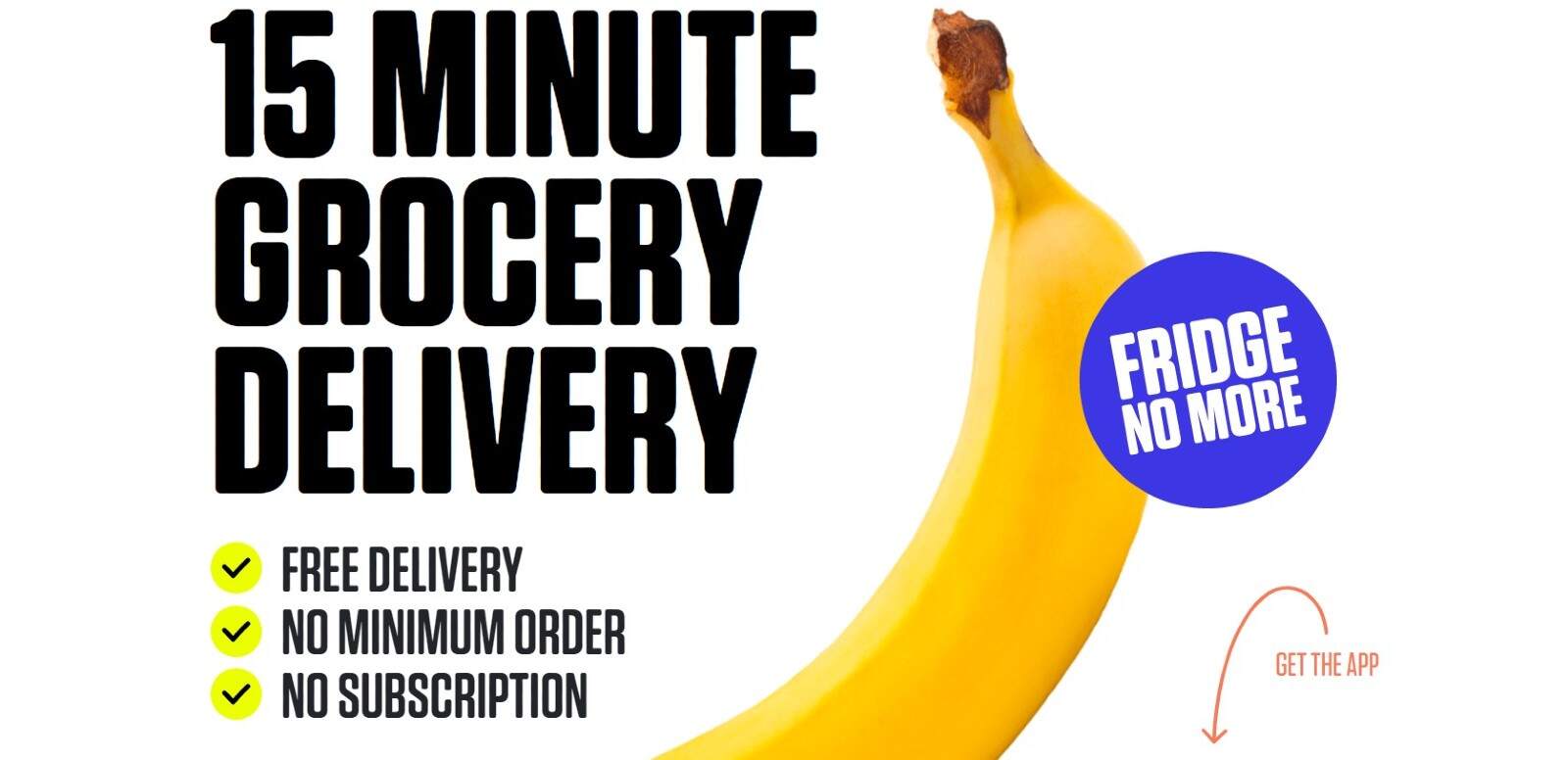How sustainable is the ultra-fast delivery model?

As two ultra-fast delivery startups go bust in the US, we have to wonder if the shine is fading from this new global delivery trend: Ultra-fast delivery — generally understood as online delivery usually completed within 10-20 minutes — seemed poised to be the next big thing in grocery delivery, with capital flooding into the sector since early 2020. But recently, two prominent startups operating in the US closed their doors in the space of a week due to their inability to raise funds.
Which two startups have gone under? Fridge No More, which launched in October 2020, was unable to continue operating after its failure to secure a potential sale added to “the dramatic and unexpected lack of funding.” And Buyk, which launched a year later, was forced to lay off its 870 employees earlier this month after its Russian owners found themselves struggling to access much-needed bridge funding due to recent sanctions. Buyk’s total funding was USD 46 mn while Fridge No More had funding of USD 16.9 mn.
Fridge No More and Buyk were among a handful of well-funded ultra-fast delivery apps jostling for market share in New York: As of February 2022, the “New York City battleground” included DoorDash, Gorillas, Buyk, Gopuff, Fridge No More, Jokr, and Getir. Gorillas and Getir, which each have total funding of USD 1.2 bn, have also landed in London, along with Zapp, Weezy, Jiffy, GoPuff and Yango Deli.
Ultra-fast delivery had been seeing an ultra-fast boom: As of November 2021, investors had poured more than USD 14 bn into ultra-fast grocery delivery apps since the start of the pandemic. In the first three months of 2021, more VC investment went into ultra-fast grocery delivery services than in the whole of 2020. As of April last year, the market was valued at almost USD 1 tn in the US and more than EUR 2 tn in Europe.
In Egypt, the model took off immediately: Egypt’s ultra-fast grocery delivery startup Rabbit, which launched in mid-October 2021, raised USD 11 mn in a pre-seed VC funding round in November — reportedly the largest-ever pre-seed round in the Middle East and Africa. The company, which guarantees delivery in 20 minutes or less, is currently operating across Cairo, Sheikh Zayed and New Cairo, and is targeting six-figure order volumes each month.
Rabbit’s founders see a huge market for fast and reliable delivery in Egypt, and in time could branch out beyond groceries, they told TechCrunch late last year. “Whatever the consumer wants in under 20 minutes, we’re going to let the market dictate what we sell. We’re not limiting ourselves as a grocery player,” said co-founder Ahmad Yousry. The company was recruiting for over 100 roles to meet anticipated demand, as of November.
It’s not just Rabbit: Existing Egyptian providers have also started focusing on ultra-fast delivery. Breadfast, which secured USD 26 mn in funding in a series A round in early November, is also targeting bringing delivery windows down to 20 minutes. And Talabat launched its 20-minute Talabat Mart grocery delivery service in March 2021, which now operates in nine governorates — including Assiut, Zagazig, Ismailia and Port Said, as well as Cairo. As of January this year, Talabat had already seen a 63% increase in grocery shopping since it launched the service.
Online, on-demand and ultra-fast grocery delivery are all set to keep growing: Market research firm Sacra expects the total volume of online grocery sales (which includes scheduled services offered by HelloFresh and FreshDirect) in the US to hit USD 192 bn by 2025. On-demand grocery delivery (which Sacra defines as delivery services spanning 20 minutes to an hour) spending could comprise a 15% share of that. And spending on ultrafast delivery could represent as much as a third of spending on on-demand online groceries in the US.
Still, Fridge No More and Buyk raise questions about ultra-fast delivery’s profitability: “The sudden failure of the two startups due to inability to secure capital quickly underscores a more fundamental issue with their businesses,” CNN writes. Some of the startups have no obvious way to become profitable, and end up reliant on VC funding, according to food supply chain consultant Brittain Ladd, who is quoted in the piece. Gorillas isn’t close to becoming profitable either, despite spending hundreds of mns of GBP.
As well as a big question about its ultimate longevity: Is it a flash in the pan, or here to stay? Aside from the issue of how to make a model financially sustainable if drivers are frequently delivering orders as small as a single apple, often with no delivery fees, companies in the sector must grapple with issues that include customer retention, environmental impact, their limited geographical research, and the limited options afforded by dark stores. All of this makes it difficult to gauge whether these apps will be around years into the future.